Budget virus plan 'substantial' but 'limited'
- Published
- comments

The Budget measures to tackle the coronavirus are substantial, but limited, according to the Institute for Fiscal Studies (IFS).
The IFS gave its assessment the day after the chancellor announced a £12bn package to mitigate the economic effects of the virus.
It also warned that working from home would be harder for factory workers than for those in office jobs.
And many self-employed people would still not be entitled to sick pay.
"Mr Sunak will certainly want to monitor the effectiveness of the package and be ready to come back with more if necessary," the IFS said.
"This is a substantial package, well targeted at what it is seeking to achieve. It is, though, necessarily limited," it said.
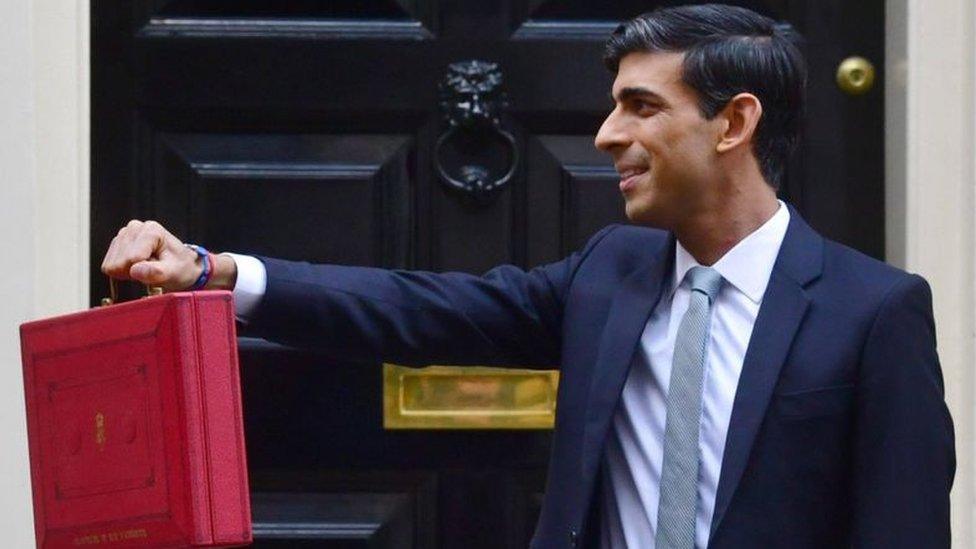
Chancellor Rishi Sunak delivered his first Budget to the Commons on Wednesday
"On the business side, it is aimed particularly at those businesses which might face a demand shock - those in hospitality, retail and so on.
"It does much less for those that might end up having to reduce production or close temporarily because staff can't come into work, either because they are ill, self-isolating or looking after children who have been sent home from school."
'Very weak' forecasts
The IFS also described the Office for Budget Responsibility's (OBR) forecasts for the UK economy as "very weak", even before factoring in long-term effects from the coronavirus.
GDP growth is the percentage change of how fast an economy is growing or shrinking over time.
The OBR said the growth rate was expected to dip to 1.1% this year, before picking back up to 1.8% in 2021.
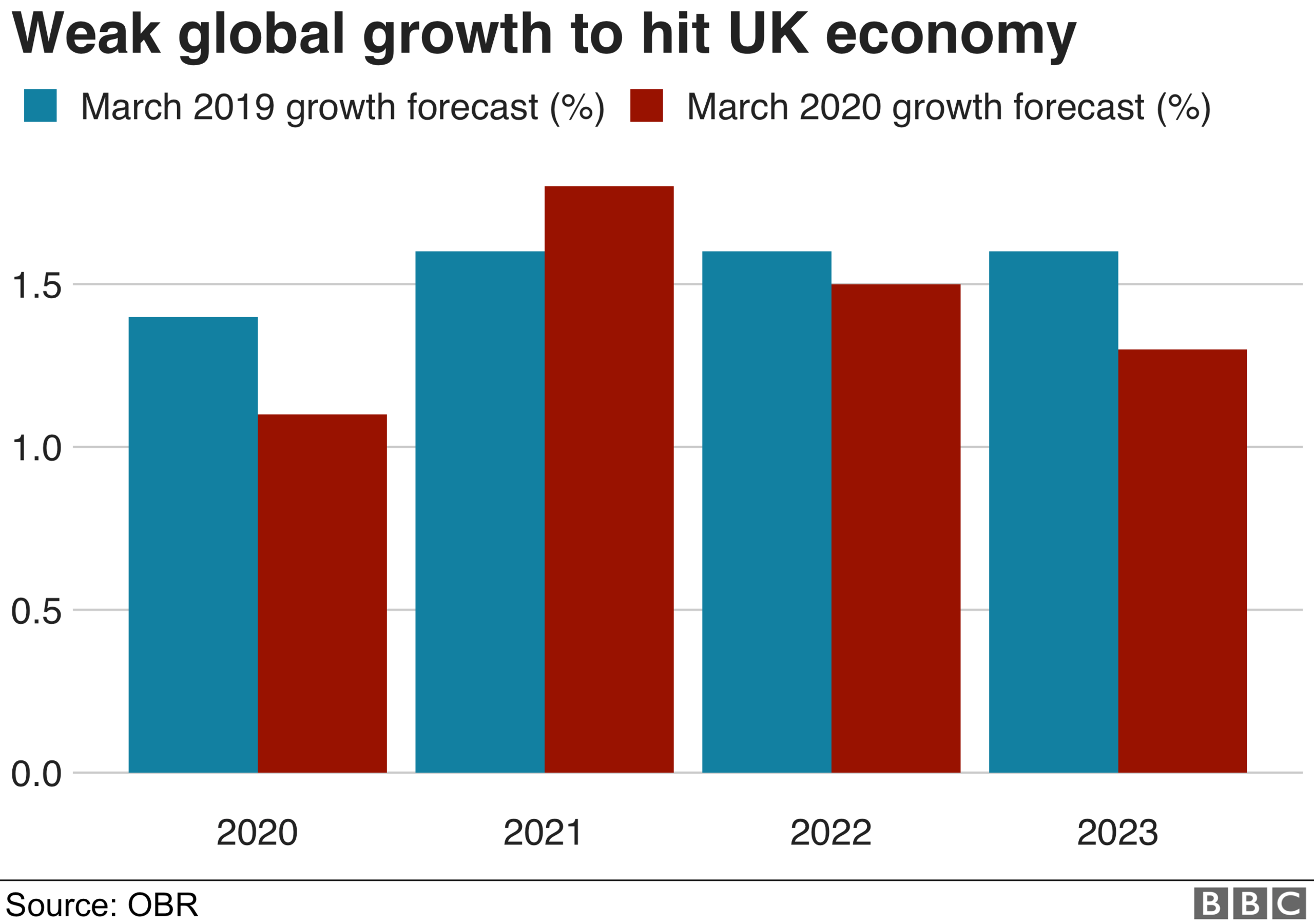
The IFS called these projections "feeble" and said that the economy was "not in a robust position for coping with shocks like the coronavirus".
Robert Chote, the OBR's chairman, said on Wednesday that given the severity of the outbreak, risks that the forecasts might need to be downgraded further were "all too clear", although the threat was difficult to quantify.
'Right economic thing to do'
Large rises in public spending also mean that general government spending will contribute more than half of GDP growth this year and the next.
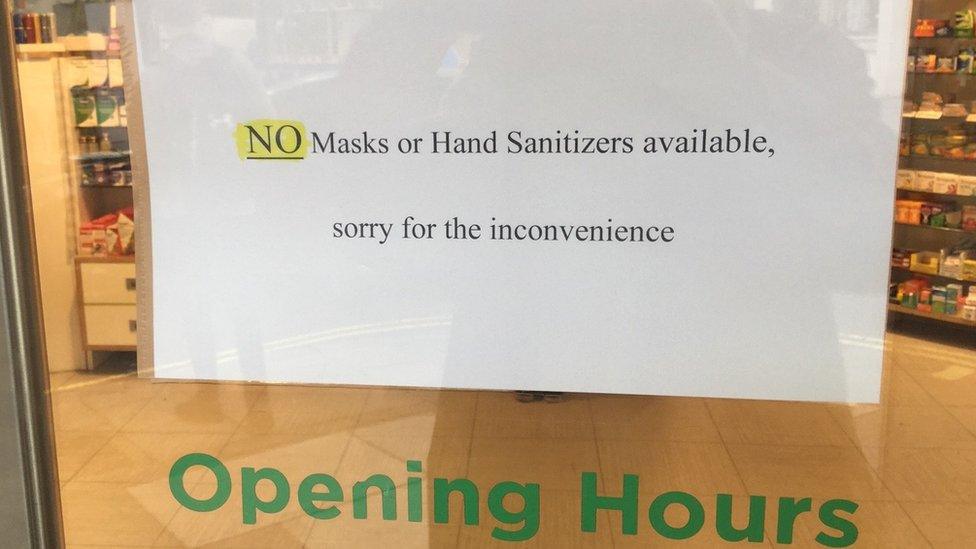
The coronavirus is leading to shortages of hygiene items
The increased spending in this Budget is being largely paid for with a big increase in government borrowing.
But Chancellor Rishi Sunak defended his plans for the UK economy, saying that borrowing was the "right economic thing to do".
He told the BBC on Thursday that interest rates were at a "multi-decade low" and he was "not going to make an apology" for the Budget.
The government expects to borrow almost £100bn more in this Parliament (before mid-2024) than was expected the last time in previous forecasts.
- Published12 March 2020
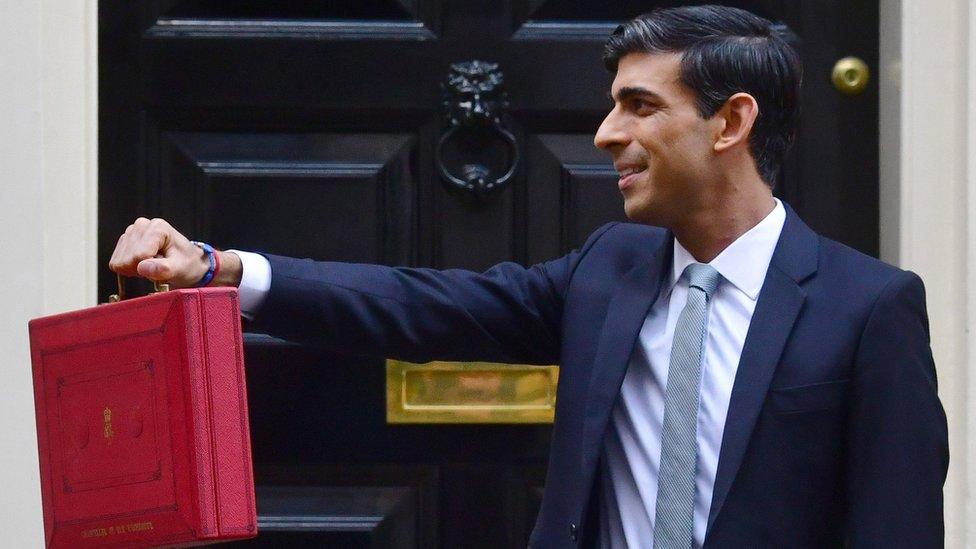
- Published11 March 2020
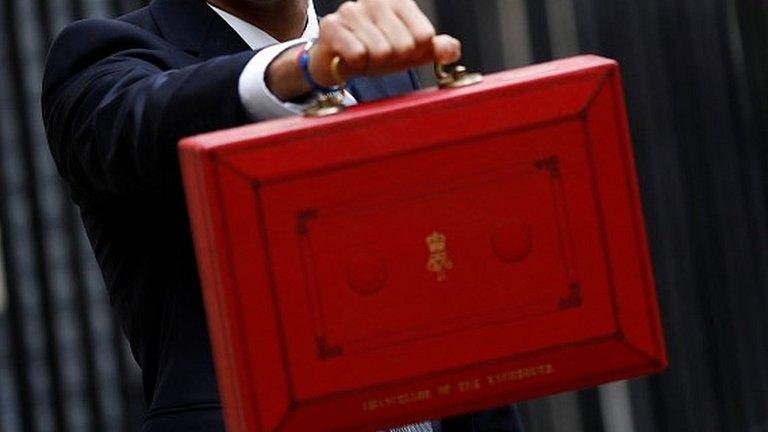
- Published11 March 2020
